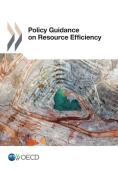
This report responds to the request by G7 Leaders at the Schloss Elmau Summit in June 2015, for the OECD to develop policy guidance on resource efficiency. Establishing a resource efficient economy is a major environmental, development and macroeconomic challenge today. Improving resource efficiency by putting in place policies that implement the principles of reduce, reuse, recycle (the 3Rs) is crucial to improving resource use, security and competitiveness while diminishing the associated environmental impacts.
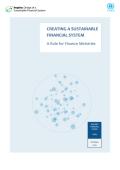
This paper investigates various roles that finance ministries can assume to promote those policies, regulations and standards which help to create a sustainable financial system. Finance ministries typically interact with the financial sector in many ways, from regulator and supervisory mandate setters to tax authority and sovereign debt issuers. All of these points of leverage empower them to play a key role in making financial systems sustainable.
Sustainability is not often regarded to be part of a finance ministry’s policy mandate. Therefore, this paper looks at cases where finance ministries use their mandates to bring about innovation in the space: Uganda, the Netherlands, the UK, South Africa, France and Germany. In conclusion, under the current mandates of finance ministries, much has already been done to begin creating significant openings that stimulate sustainability in the financial sector.
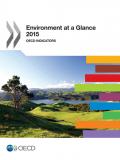
Environment at a Glance 2015 updates key environmental indicators and relevant socio-economic and sectoral indicators to track OECD country progress on major environmental issues and inform policy development and evaluation. This year's edition includes increased coverage of environmentally related taxation, ODA and R&D expenditure.
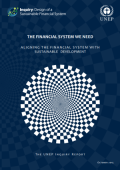
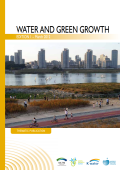
This report is the first major output of a project on Water and Green Growth, led by the Government of the Republic of Korea and the World Water Council (WWC). It is the result of over 12 months of research and analysis by an international group of experts. It provides an analysis of 26 case studies that illustrate various aspects of water and green growth, and then uses the analysis to recommend a draft framework for policymakers.
